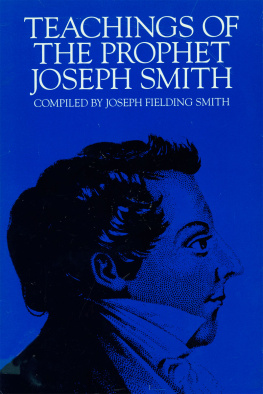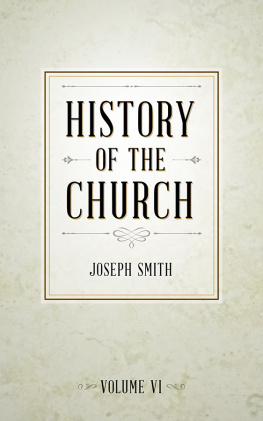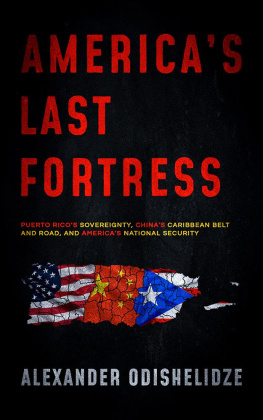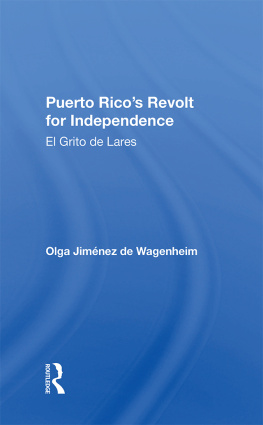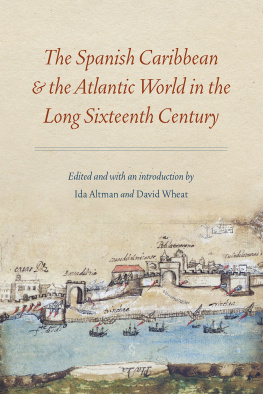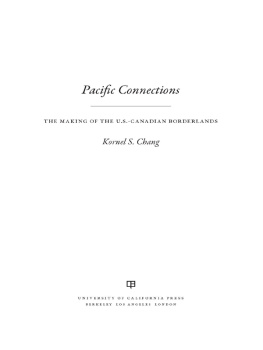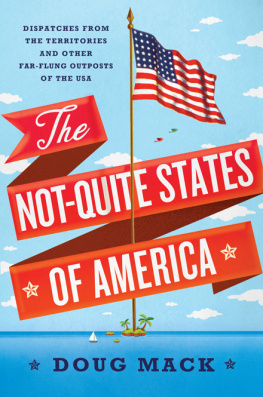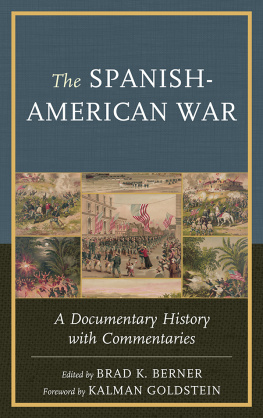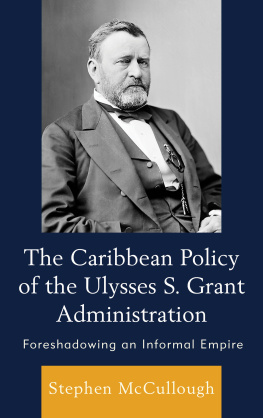THE SPANISH-AMERICAN WAR
MODERN WARS IN PERSPECTIVE
General Editors: H.M. Scott and B.W. Collins
This ambitious new series offers wide-ranging studies of specific wars, and distinct phases of warfare, from the close of the Middle Ages to the present day. It aims to advance the current integration of military history into the academic mainstream. To that end, the books are not merely traditional campaign narratives, but examine the causes, course and consequences of major conflicts, in their full international political, diplomatic, social and ideological contexts.
ALREADY PUBLISHED
Mexico and the Spanish Conquest
Ross Hassig
The Anglo-Dutch Wars of the Seventeenth Century
J. R. Jones
The Wars of Louis XIV, 16671714
John A. Lynn
The War of the Austrian Succession, 17401748
M. S. Anderson
The Wars of Frederick the Great
Dennis Showalter
The Wars of Napoleon
Charles J. Esdaile
The SpanishAmerican War: Conflict in the Caribbean and the Pacific 18951902
Joseph Smith
The Wars of French Decolonization
Anthony Clayton
China at War, 19011949
Edward L. Dreyer
First published 1994 by Addison Wesley Longman Limited
Second impression 1999
Published 2013 by Routledge
2 Park Square, Milton Park, Abingdon, Oxon OX14 4RN
711 Third Avenue, New York, NY 10017, USA
Routledge is an imprint of the Taylor & Francis Group, an informa business
Copyright 1994, Taylor & Francis.
All rights reserved. No part of this book may be reprinted or reproduced or utilised in any form or by any electronic, mechanical, or other means, now known or hereafter invented, including photocopying and recording, or in any information storage or retrieval system, without permission in writing from the publishers.
Notices
Knowledge and best practice in this field are constantly changing. As new research and experience broaden our understanding, changes in research methods, professional practices, or medical treatment may become necessary.
Practitioners and researchers must always rely on their own experience and knowledge in evaluating and using any information, methods, compounds, or experiments described herein. In using such information or methods they should be mindful of their own safety and the safety of others, including parties for whom they have a professional responsibility.
To the fullest extent of the law, neither the Publisher nor the authors, contributors, or editors, assume any liability for any injury and/or damage to persons or property as a matter of products liability, negligence or otherwise, or from any use or operation of any methods, products, instructions, or ideas contained in the material herein.
ISBN 13: 9780-582043404 (pbk)
British Library Cataloguing-in-Publication Data
A catalogue record for this book is
available from the British Library
Library of Congress Cataloging-in-Publication Data
Smith, Joseph, 1945
The Spanish-American War : conflict in the Caribbean and the Pacific,
1895-1902 / Joseph Smith.
p. cm. -- (Modern wars in perspective)
Includes bibliographical references and index.
ISBN 0-582-04300-X (cased). -- ISBN 0-582-043400-9 (paper)
1. Spanish-American War, 1898. I. Title. II. Series.
E715.S74 1995 | 93-44809 |
973.89--dc20 | CIP |
Over several years my undergraduate course on U.S. History has dutifully included a discussion of the events of 1898. From the kindness of the late Harold Blakemore, who regularly asked me to review books on this subject for the Journal of Latin American Studies, I became aware of changing historical interpretations and the need for an up-to-date synthesis designed for student use. To my surprize and delight, Harry Hearder suggested that I write a general study for Longman. I am indebted to him that he chose me to do this. The timing was propitious because the task of research was enormously assisted by my spending 199091 in the U.S.A. as a Visiting Professor at the University of Colorado at Denver. My work was later greatly facilitated by a travel grant from the British Academy which enabled me to visit Havana and Santiago de Cuba in 1992. I wish also to thank the Departmental Research Fund of the Department of History and Archaeology at the University of Exeter for financial assistance to make research trips to London and to attend overseas conferences.
Among the individuals who have helped me complete this project, I am grateful to Mark Foster for giving me the opportunity to teach a graduate course on the Spanish-American War at the University of Colorado at Denver. My special thanks go also to Michael Garcia for his many personal kindnesses and to John Lynch for his invaluable counsel. The editorial stage of publication had been expedited by the efficiency of Bruce Collins and Longmans. I am also grateful to Sean Goddard for supplying the maps. Most of all, however, I must once again thank Rachael for her encouragement and enduring support.
During the latter half of the nineteenth century Spain cut a sorry figure in comparison to the expanding great powers of Europe. The monarchy, the traditional symbol of Spanish unity, was overthrown in 1868 and only restored in December 1874 by a military coup. The untimely death of King Alfonso XII in 1885 resulted in an infant successor and the regency of the Habsburg princess, Mara Cristina. Beset not only by Carlist pretenders to the throne but also by persistent criticism from republicans and socialists, the monarchy faced an increasingly uncertain future as the century drew to a close. Paradoxically, however, Spanish political life during the Restoration projected an image of relative calm and stability. This was achieved by caciquismo, a system of scheming and manipulation which enabled the political bosses known as caciques in alliance with the wealthy landowners, military leaders and government officials to rule the state for their own personal advantage. At the national level, politics were dominated by the Conservative and Liberal parties who took it in turns to share periods in government office. The two foremost practitioners of caciquismo were Antonio Cnovas del Castillo, who headed the Conservatives, and Prxedes Mateo Sagasta, the leader of the Liberals. Behind the democratic veneer of elections, debates in the Cortes (national parliament), and regular changes of government, Spanish politics were controlled by a network of corrupt and selfish cliques. Political life was so barren that Spain was said to be marooned in the Dead Sea of politics.1
The curious mood of self-deception so evident in Spanish internal politics also applied to the countrys relationship with its overseas colonies. There was no denying the fact that the once great empire of Charles V and Philip II had shrunk by the middle of the nineteenth century to include only Cuba, Puerto Rico, the Philippine Islands, and a few small territories in the Pacific Ocean and North Africa. However meagre they were in size, the continued retention of these possessions assuaged the sense of national loss and humiliation caused by the breaking away of the Latin American colonies at the beginning of the nineteenth century. In this context, Cuba was accorded special significance in the Spanish psyche. Not only was Cuba the largest and richest island of the West Indies, but it had also remained loyal to the mother country. Cuba was affectionately described by Spaniards as the ever-faithful isle and was perceived as living proof that Gods blessing continued to shine on Spains imperial status.


